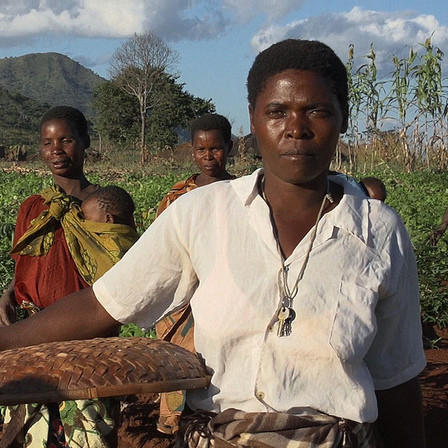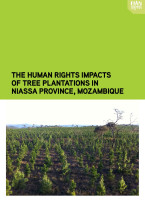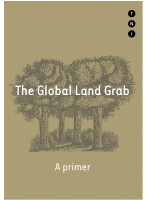Seeds of Discontent film
Regions
A powerful short documentary about how supposedly well-meaning Dutch and Swedish investments can result in land grabbing and human rights abuses in one small community in Mozambique.

Duckin\' & Divin\' Films
Trailer: Seeds of Discontent. Full film can be seen here
In the northern province of Niassa, Mozambique, one company, Chikweti, set up with investments by Swedish and Norwegian churches and the Dutch pension fund, ABP is establishing large tree plantations. Chikweti not only promised their investors a large financial return, but also claimed it would deliver jobs, environmental protection and community development to the region. It seemed a win-win for everyone.
This documentary follows the story of one of the plantation workers, Amado. He wants to improve the conditions of his fellow workers in the Chikweti plantation of Licole, Mozambique. He’s frightened and often intimidated in pursuit o f this goal, while facing an apathetic union, a hardnosed manager, and a group of elders determined to halt his actions.
But will Amado achieve the support he needs from his fellow workers and local peasant farmers while facing up to the company management?
We discover the answer when he and a new local union confront Chikweti by rallying the local peasant farmers and plantation workers to stand together.
> Watch full feature film (23 minutes)
About the film
“Seeds of Discontent” was commissioned by Transnational Institute and FIAN International as part of their work in the Hands off the Land Alliance. It is based on research initially done by the Mozambican National Peasants’ Organization, UNAC (União Nacional de Camponeses)
Background on Niassa and Mozambique can be found in the report: 'The Human Rights Impacts of Tree Plantations in Niassa Province, Mozambique' and more on the Global Land Grab in this primer
Director's notes
On the banks of the Ruvuma River, surrounded by the beautiful landscape of Northern Mozambique, lies the picturesque province of Niassa.
Two thousand kilometers from the country’s capital is a region that attracts honeymooners, adventure tourists, and conservation specialists from all over the world. Expedition guides come to work here every day, marveling at the nature, while nearby the locals go about their daily lives.
In the midst of a province exploding with biodiversity, I was intrigued to be spending the next two weeks filming in a small village 20km from the provincial capital, Lichinga.
After a week of talks with the regional peasant movement (UPCN), the cameraman and I set off to meet members of a small village, who were resisting a company operating in the region.
After only a few days I met Amado, a local farmer who had changed paths and come to work for Chikweti. His wife and kids were still living on their small farm while Amado moved to town seeking work on the plantation.
One afternoon he offered the cameraman and I an opportunity to travel with him back to his farm just “20 minutes away”. Four hours, two broken down vehicles, and one puncture later, we arrived where Amado and five families were living. Needless to say Amado thought nothing of the journey, as it’s a regular weekly trip for him.
The beautiful and uncommon intimacy of the footage provided a powerful palette for the film, but at the same time it imparted a clear responsibility on behalf of the crew. Every evening I would sit down with the chief and dozens of community members to watch the footage shot that day. Often in the pitch black, this sometimes went into the early hours. Yet ultimately, the immediacy of the footage insisted that I always sought out the truth beyond mere observation.
We filmed the residents in their homes, with their families, and out in the fields to see what happens; how they were organising, who they respected, what opportunities presented themselves or not. In just a few weeks we witnessed the dangers and disappointments, recorded the role of authority (both traditional and state) and saw how their experience of one forestry company affected their attitudes, their hopes and dreams.

